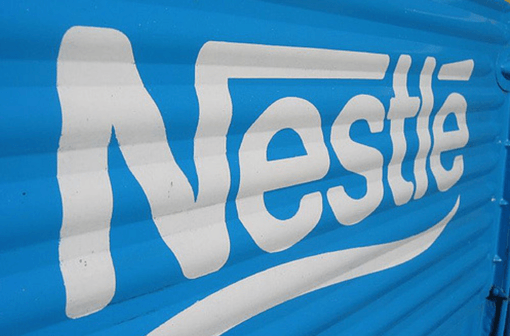
Photo source Raúl Hernández González | CC BY 2.0
Screw the people of Flint, or so goes the mantra of the Michigan Department of Environmental Quality (MDEQ), which last month approved a controversial permit that will allow Nestlé to pump and bottle 400 gallons of fresh water per minute from the state’s White Pine Springs, near the Osceola Township. Meanwhile, back in Flint, residents still aren’t buying the Governor’s bullshit that their water is safe to drink.
The privatization of the public’s water is only becoming more prevalent as reservoirs dry up around the globe. Bottled water sales have skyrocketed in the last ten years while access to fresh, affordable H20 has decreased. In places like Cape Town, South Africa, which is in the midst of a dire water shortage, it’s not just climate change that’s making the city quench for thirst — the impoverished can’t afford private water but residents with money are able to subsidize their meager rations.
“Many of the rich own water-bottling companies, they can afford to buy water,” Ebrahiem Fourie of the Cape Town Housing Assembly recently told journalist Dahr Jamail. “The available ground water [springs] are usually in affluent areas, which makes them easy to access, and with the current water restrictions the rich have cars to load their water.”
Mega-corporations like Coca-Cola and Nestlé may seem like a nice solution for communities that don’t have access to clean drinking water. Their water is potable, portable and generally safe. However, as we are witnessing in Cape Town, private companies in the water business cater to those with cash. The poor are left out to dry. Deals like Nestlé is scoring in Michigan won’t fix the water problem in Flint — which is one of the poorest communities in the nation — it will likely exacerbate it.
That didn’t stop MDEQ from issuing a permit to Nestlé, despite receiving over 80,000 letters in opposition as opposed to a meager 75 in support. The permit came as thousands of residents of Detroit were set to have their water shut off for non-payment. It also landed four days after the state ended its distribution of bottled water in Flint, despite a public outcry that the program was ending far too early.
Nestlé isn’t bad at turning a profit on a cheap commodity. Last year Nestlé Waters North America sold $4.5 billion of bottled water at 27 different bottling facilities in the U.S. and Canada.
The cost to Nestlé for tapping into Michigan’s water supply? $200 a year. There’s money to be made in the water game.
Michigan has more freshwater than any other state, yet the Michigan legislature has acknowledged that supplies are still finite. A 2006 study showed that large withdraws of freshwater can damage the environment and put a toll on reservoirs.
“The permit was issued in clear violation of the legal requirements of the State of Michigan and we intend to show this,” claims Peggy Case, President Michigan Citizens for Water Conservation (MCWC). “From the initial granting of a permit for 100 additional gallons per minute in 2015, to this final gift of another 100, the State of Michigan has clearly bent the law to favor Nestlé.”
Residents of Michigan aren’t going to go down without a fight. Case’s group is planning to take the MDEQ to court. In fact, in the early 2000s the same outfit waged a similar case against Nestlé on the grounds that their pumping of water in Michigan’s Mecosta County would have negative impacts on the environment. They won, and a judge ordered Nestlé to end its pumping. Three years later a Michigan appeals court overturned a portion of the lower court’s original decision, but still limited the amount of water Nestlé could syphon.
Jim Olson, an environmental lawyer working with non-profit, For the Love of Water, recently told Jim Malewitz of Michigan Environment Watch, that Nestlé’s in for a tough legal battle. Olson helped take on Nestlé before and is ready again, this time with more data to back up the claim that pumping too much freshwater has negative impacts.
“We know what happens in headwater creeks and streams in Michigan from (the Mecosta Township) case,” Olson says. “We have a real-world litmus test here.”
Michigan Gov. Rick Snyder may say the water is safe to drink in Flint, but most residents don’t believe Snyder’s claim that their water is safe. Their cause for concern is warranted. In February, MDEQ found that 28 water samples taken from elementary schools in Flint registered above the federal lead limit. The old pipes in Flint won’t all be fully replaced until 2020.
So let’s get this straight: water still isn’t safe to drink in dozens of Flint’s public schools yet Nestlé is set to make millions off of Michigan’s water? Welcome to Michigan water politics.
“Those people [in Flint] should have first rights to the water that Nestlé is being given,” Peggy Case of MCWC said in a statement following the permit announcement. “The state should be trucking the groundwater of the commons to Flint in large containers [for] free.”